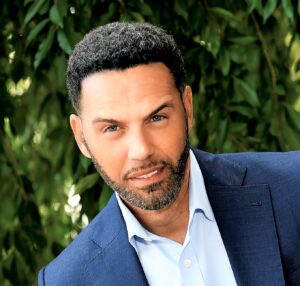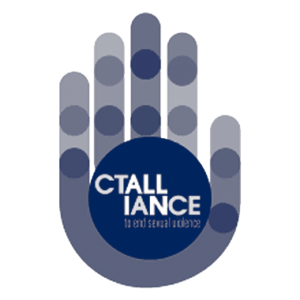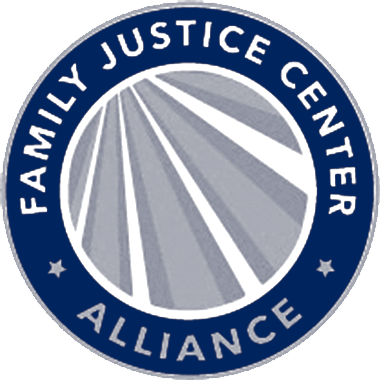CFJ Spoke to Steve About Being A ‘Human Lighthouse’ and Overcoming Abuse
Steve Pemberton has realized many of his dreams.
Married to Tonya, Steve has three children and recently welcomed the couple’s first grandchild.
He has written two books, including his most recent The Lighthouse Effect, and has built himself an impressive career as a motivational speaker and business executive. But his childhood was a difficult one.
Steve entered into the foster care system at 3 years old. His last foster family both physically and mentally abused him.
Thanks to supportive and caring adults in his life, Steve was able to get out of that home, through college and into a successful life. He believes in doing good for others, partly by sharing his story and those of others who, with help from their own ‘lighthouses’ and their hard work, found their way.
Steve recently spoke to CFJ staff about his life, what he has learned and what he hopes both kids and adults will get out of what he has to say at Speaking of Women on Sept. 10, 2024 at The Waterview in Monroe. Over the next few weeks, we will share parts of that interview. See below for the first part.

Author and motivational speaker Steve Pemberton will be CFJ’s keynote speaker at Speaking of Women on Sept. 10.
To purchase your tickets to Speaking of Women, go here.
I’m not an exception. I’m a reflection of what’s possible for them. Had I seen or encountered a story like mine at that age, I would have said,
‘So it’s possible.’
STEVE PEMBERTON,
On what he hopes youths will get out of his talk in September
CFJ
For those who haven’t lived through what you lived through, Steve, how would you describe the impact of the trauma you experienced both when you were a child and how it may still impact you as an adult?
Steve:
For me, it’s been galvanizing, actually. The impact that it had upon me was one of resolve and determination that the cycle that I had been born into would come to an end. I was the third generation to be orphaned, the third generation that had gone through a family separation.
So, for me, I never saw myself and do not see myself as traumatized. I actually saw it as a set of experiences that had been hoisted upon me that were not of my request and not of my doing. So, I felt like I had a particular responsibility, though, to end it, and it has ended, and it’s ended with me.
So, the responsibility that I now have is another impact. That responsibility isn’t just to end the cycle, but it’s to help others end theirs.
CFJ:
What message do you want the kids who may be in the same kind of situation you were in or stressed out because they’re in a bad situation, what do you want them to get from listening to you speak?
Steve:
I’m not an exception. I’m a reflection of what’s possible for them. Had I seen or encountered a story like mine at that age, I would have said, ‘so it’s possible.’
I think when you’re in it, you think it’s just you. Nobody’s living the way that you are because all around you, in the neighborhood or where you go to school, you see normalcy. You see what you don’t have.
You think that there’s something that you missed, something you did wrong. And what I’m hoping they’ll see, two things, really.
Lighthouses Show You The Way; You Put In The Work
One, the importance of you deciding that there will be no more. You’re the one who has to decide that. That’s probably not entirely fair to say, but I don’t think the lighthouses in our life show up until we say there’ll be no more storms. That’s what CFJ is there for.
One can’t say that there wasn’t someone who was trying to show you the light. Somebody’s trying to show you a path. They can’t force you though.
The lighthouse doesn’t force you to come to safety. It just points the way. You’re the one who has to do some of the lifting.
It’s this wonderful symbiosis that for many of us, we encounter people who recognize the urgency of our quest. They recognize the journey that we’re on, and they’re trying to help us get there. You have a responsibility to recognize that as well.
Don’t Wear Someone Else’s Chains
The other I do think that’s important that I’ll just double-click on is the power that they have. If you have encountered some kind of tragedy, some kind of trauma, some kind of difficulty, especially as a young person, you inherited that. I certainly think of it this way, I won’t walk through the world wearing somebody else’s chains.
This prediction that I was never going to amount to anything, that I had no choice but to continue the cycle, that was somebody else’s chains that they were trying to wrap me around. I refused. I was going to shrug them off.
All of us have had people in some way, shape, or form asking us to walk through the world wearing their chains, their burdens. That I just can’t allow.
I think that’s an important message for young people to hear, that when you hear these things about what you can’t do, what you cannot be, that’s really not necessarily about you. That might be more about them.
For more of Steve’s Interview, Read Next Week’s Post!







